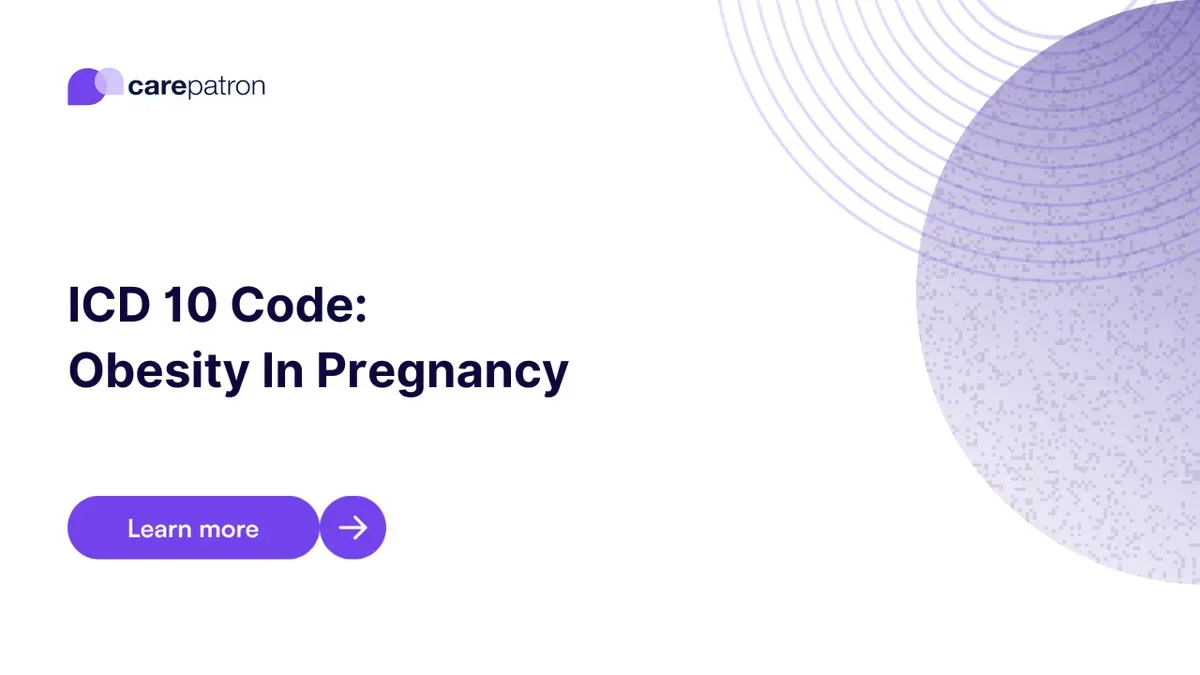
Obesity In Pregnancy ICD-10-CM Codes
Read this short guide and learn about obesity in pregnancy ICD codes you can use!
Use Code
Commonly asked questions
Yes. There are other ICD-10 codes that can be used to explain a patient’s obesity, but they’re not exactly specific to obesity in pregnancy.
They will closely monitor the unborn child and may conduct tests to screen for gestational diabetes and sleep apnea, and they will also make adjustments to fetal ultrasounds to work around the obesity.
Make dietary changes that promote the avoidance of excessive weight gain, be physically active despite being pregnant (so long as they are safe to do), and avoid smoking and consuming other substances like alcohol and drugs.
EHR and practice management software
Get started for free
*No credit card required
Free
$0/usd
Unlimited clients
Telehealth
1GB of storage
Client portal text
Automated billing and online payments
